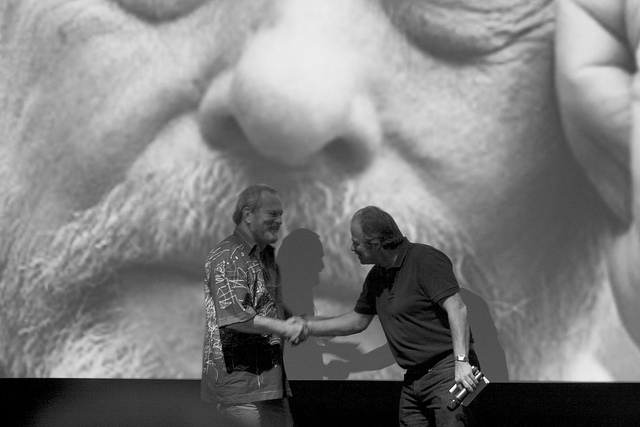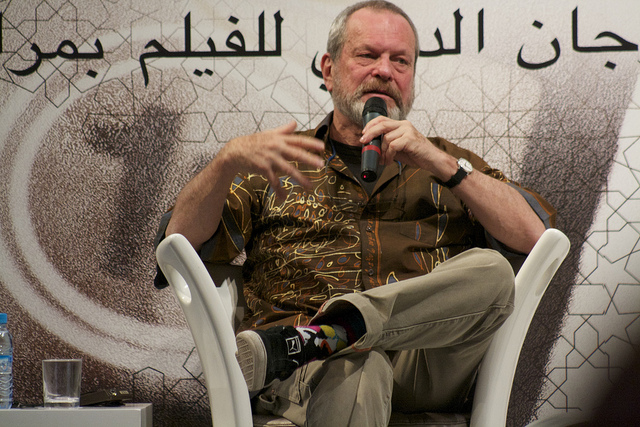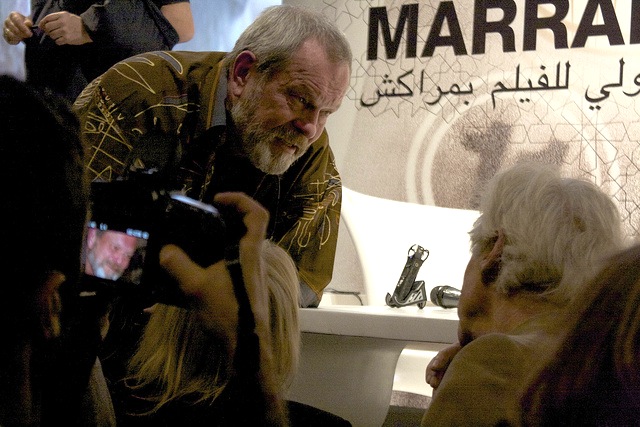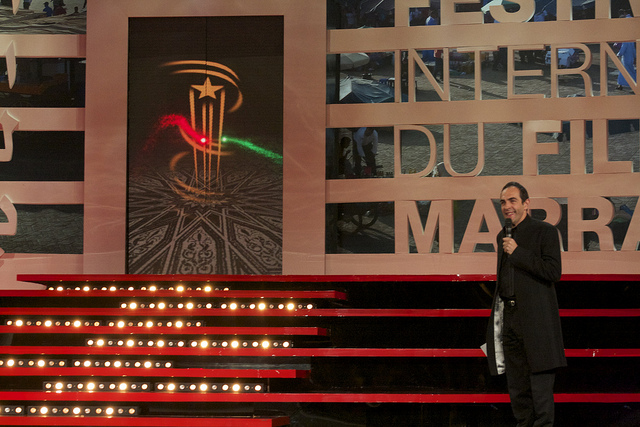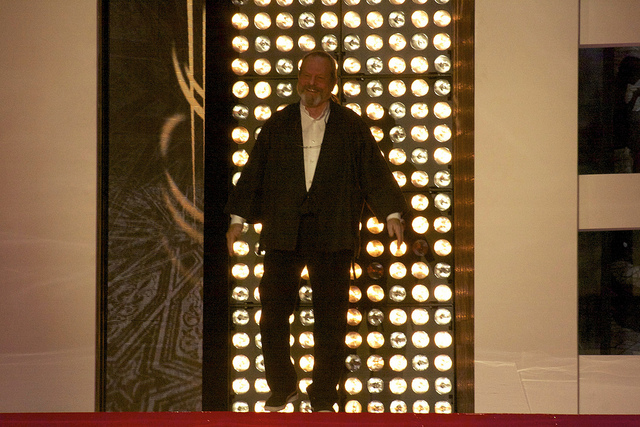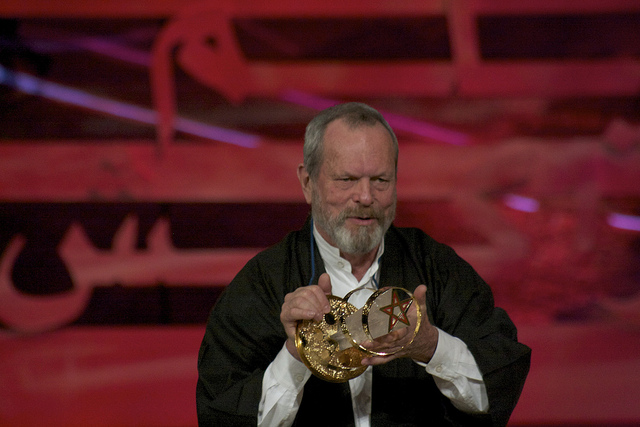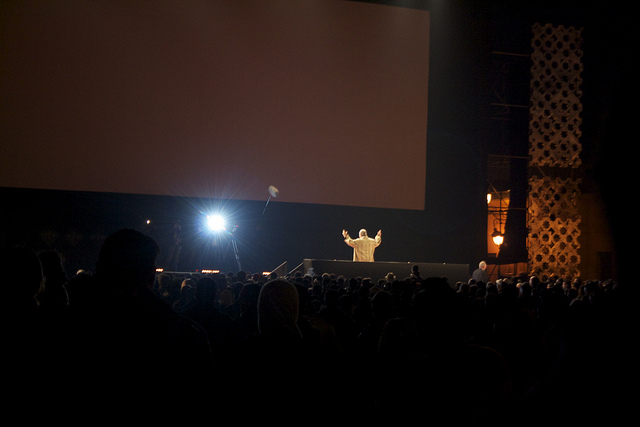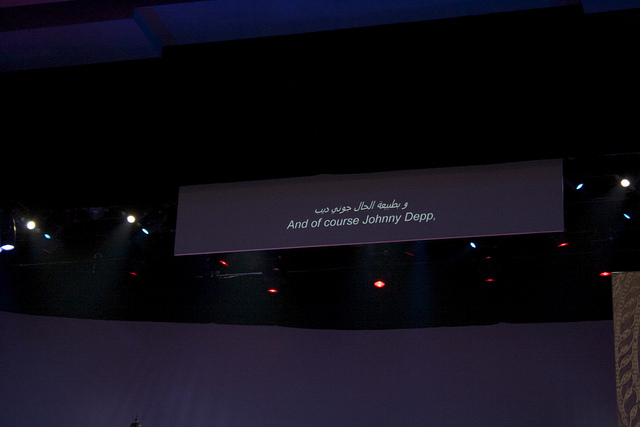

By Ray Pride Pride@moviecitynews.com
Dispatches: Marrakech International Film Festival II: Terry Gilliam
Smack in the middle of the nine days of the tribute-laden 11th edition of the Marrakech International Film Festival in early December, three sentences kept popping up among English-speaking journalists: “We’re in Africa“; “That’s a lot of food” and “Where’s Terry?” As in… Terry Gilliam. (Insert characteristic giggle.)
A packed late-afternoon masterclass of largely young faces sang with Gilliam’s familiar fast, funny, unguarded commentary. The simple question, “Why film?” got a simple anwer. “I suppose it’s the best job out there.” He laughed, often. “I get rid of all my nightmares by giving them to you.” When things go wrong, he’s inspired: “With no choice, you have to just be instinctive… I’m lucky that way, things aways go wrong.” Gilliam sounded one of his familiar refrains: “The trick is not to have a career. If you don’t have a career, you don’t worry.” Catering to others’ expectations is trouble, he said. “The worrying thing is who is the common denominator—” he trailed off for a second— “It’s not my fault!”
Gilliam on reality versus dreams:
Gilliam on the “Don Quixote” disaster and what any potential filmmaker should take from it:
“What I love about Don Quixote is that he keeps misinterpreting the world. He thinks the world is either worse or better or whatever. He gets it wrong every time. He has these heroic, epic moments and he seems to be unstoppable. He just goes on and on and on. I think he’s a great example for people, especially in film, in how to get through life, because films can often be incredibly disappointing. What I like about the documentary is that so many other filmmakers, when they saw that, they could start telling me their stories of equally horrible disasters. It’s a very difficult business. That’s why I like the documentary, it should discourage anybody who’s not willing to live in a world that disasters like that occur. Don’t make films if you’re not going to be able to deal with things like that.”
Gilliam on how he chooses actors:
On the night of his honor, Gilliam is introduced by jury president Emir Kusturica, who explains Gilliam and his genius in terms of his relationship to Kusturica and Kusturica’s genius. Gilliam doesn’t care: the consistent, grateful giggle’s there in any case as he accepts his Golden Star Award.
The stage setting’s 1970s game show trappings suit Gilliam’s apparition…
… as if he’s teleported onto the east coast of Africa into a music hall revue from some doomed film set elsewhere, on the other side of the planet.
Gilliam’s as-yet little-seen sponsored short, The Wholly Family, won best short at the 2011 European Film Awards (after premiering at Bradford in March 2011 and showing at Thessaloniki International in November). A tart small fable of ugly Americans on holiday in Naples, of dolls come to life in a small boy’s imagination after his bickering mother and father make the city seem more rundown than it already is, it’s distinctly a Gilliam film, with stretches of lighter-than-air invention mingling with abrupt grotesquerie.
And at the fall of the next night, just past 6pm…
Gilliam, a small bright angel, poses for photographers on the stage with tens of thousands of viewers estimated in Djemaa el Fna behind him before a screening of The Imaginarium Of Dr. Parnassus.
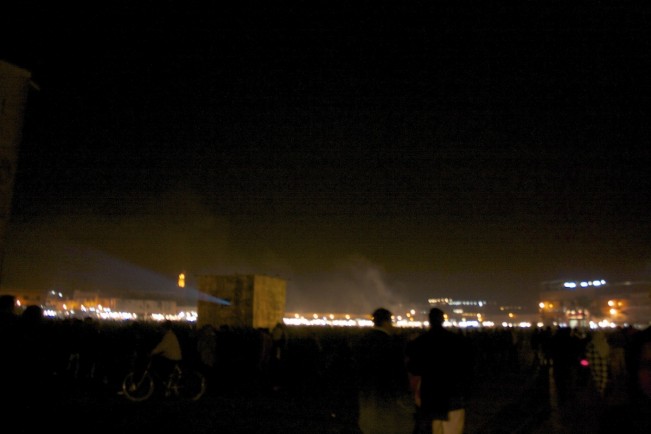 Projecting The Imaginarium of Dr. Parnassus to a crowd of thousands in Jamaa al-Fnaa square in front of the Night Market. As a colleague observed, the huge expanse is a great place to buy fresh-squeezed orange juice, buy fantastic street food for nothing at all, see bits of a movie with thousands of others, and just maybe get run down by a dirt bike in a teeming, suitably Gilliamesque tapestry.
Projecting The Imaginarium of Dr. Parnassus to a crowd of thousands in Jamaa al-Fnaa square in front of the Night Market. As a colleague observed, the huge expanse is a great place to buy fresh-squeezed orange juice, buy fantastic street food for nothing at all, see bits of a movie with thousands of others, and just maybe get run down by a dirt bike in a teeming, suitably Gilliamesque tapestry.
Plus: a panorama of the screen and the crowds and the Night Market in the square under the near-full moon (1:14 vid):









